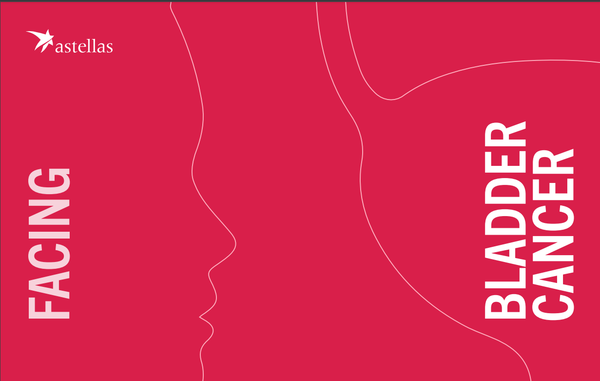Astellas Pharma, a multinational pharmaceutical company based in Japan, has released a report detailing the disadvantages of living with bladder cancer and its psychological impact.

Bladder cancer is the fifth most common cancer globally, with 151,000 new cases diagnosed in Europe alone every year. However, despite its high prevalence, bladder cancer has low public awareness as 32 percent of people are unaware of its existence, resulting in poor understanding that shows reasons for high ignorance and social stigmatizing, according to the company.
The report, backed by a panel of patients and experts, showed that feelings of disgust, embarrassment, and self-blame were apparent amongst bladder cancer patients, highlighting the hardship patients undergo from often-delayed diagnoses to end-stage care.
More than 300 patients and caregivers participated in the research in the U.S. and Europe, revealing that mental health is also a significant issue with bladder cancer patients and 23 percent of their caregivers, giving them added pressure.
The report also revealed that the self-stigmatization of bladder cancer patients has a huge impact on their mental health, frequently leading to depression and anxiety, as seen by a decrease in daily activities, with 77 percent of patients replying that they are less likely to leave their homes for days.
It also found that loneliness and resentment are profound issues, with 42 percent feeling lonelier than before diagnosis and 36 percent resenting the disease's impact on their lives.
The report called for urgent change to support patients and their caregivers.
"There is a keen necessity to raise the profile of bladder cancer to increase public understanding and empathy towards those affected and recognize the needs of caregivers so that they do not feel neglected to address the issues," the report said. "Healthcare systems also need to adopt more efficient strategies for earlier and faster diagnosis and improve communications among healthcare professionals to enhance patient outcomes."
World Bladder Cancer Patient Coalition Executive Director Alex Filicevas said, "Bladder cancer does not receive the attention it deserves despite being one of the 10 most diagnosed cancers."
He added that the impact on the emotional well-being of people living with this cancer and their caregivers is considerable, as identified in the report.
Filicevas noted that these findings bring to light the reality of low awareness and the impact on mental health that all related people, as part of the bladder cancer community, need to come together to help improve the quality of life of bladder cancer patients and their caregivers.
Stephen Head, Astellas’ senior director of patient partnerships, agreed.
"The report highlights the real impact of living with bladder cancer on patients and their caregivers," Head said. "Lack of awareness has been linked to declining mental health, affecting prognosis."
If the international community wants to improve the environment for those impacted, it must prioritize efforts to increase education and provide resources to support impacted people, Head added.

